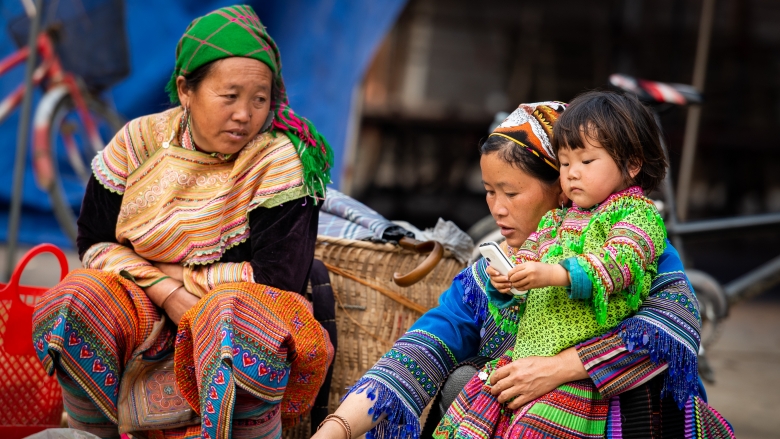WASHINGTON, June 9, 2020—Why did we have to wait for a pandemic of this magnitude to realize that digital access should be universal? Why do people tend to assume that tech is gender neutral? These are some of the questions asked at a recent World Bank Live event cohosted by the World Bank Digital Development Global Practice and CES, the global stage for innovation, in the context of a Global Tech Challenge cosponsored by both organizations.
“I can’t think of a better cause than contributing to close the digital gender divide. This is particularly the case during the COVID-19 pandemic, when digital technologies have become our lifeline. The crisis may in fact reinforce the digital gender divide, including through its impact on girls’ education. Now is the time to do something about it,” said Boutheina Guermazi, director of Digital Development at the World Bank, who gave the opening remarks. At 51% (versus 67% in 2017), South Asia still holds the unfortunate distinction of having the world’s widest gender gap, followed by Sub-Saharan Africa, at 37%. Why should we be worried? The answer is simple: the digital divide could increasingly prevent women from accessing life-enhancing services for education, health, and financial inclusion in a world that has become virtual overnight.
Ellen Savage, Vice President of Membership, for the Consumer Technology Association, the trade association representing the U.S. consumer technology industry and host of CES, shared her excitement to see the tech and development community join forces as part of a Global Tech Challenge which calls on the tech community to help tackle gender inequality through access to digital technology.
Amrote Abdella, regional director of Microsoft 4Afrika and Regina Honu, a software entrepreneur from Ghana and founder of Soronko Academy, the first coding and human-centered design school in West Africa, both insisted on the importance to encourage girls to pursue STEM as a career while continuing to challenge gender norms. “You can’t have women in tech if you don’t have girls in STEM (Science, Technology, Engineering and Mathematics), said Abdella, “which is why it’s so important to promote STEM within the education system.” Regina Honu shared that her entrepreneurial journey started with a lot of self-doubt but pointed out that she was able to take an innovative idea and impact millions of people just with a click of a button. “Tech is the new superpower,” she said. But women and girls need extra attention. For instance, during the pandemic, Honu realized that some of the girls who were attending her digital skills program couldn’t spend as much time online because they had to help with household chores. “We had to find innovative ways to spread content via WhatsApp and ways to keep mentoring them,” she said. “We have to keep the momentum going. This is not a one-time engagement. This is a lifetime commitment,” she added.
Sonia Jorge, executive director of the Alliance for Affordable Internet (A4AI), and longtime advocate of gender equality in development, gave a passionate plea for bridging the digital gender gap. “Did we really need COVID-19 to show the world that digital inequality was the reality that we live in? I don’t think we need COVID-19 for that. But because we have it, we need to make the best of it,” she said. “What this crisis shows is that if you call something a crisis, people start mobilizing and acting. Why don’t we do that on an ongoing basis? How can we ask governments from Panama to Uganda to South Africa to not only implement policy actions that will bring connectivity to women because there is a crisis but have them realize that addressing the real needs of women and girls in their countries should be part of their day-to-day policymaking?,” she asked.
Now should have been yesterday. It’s time to mobilize.

